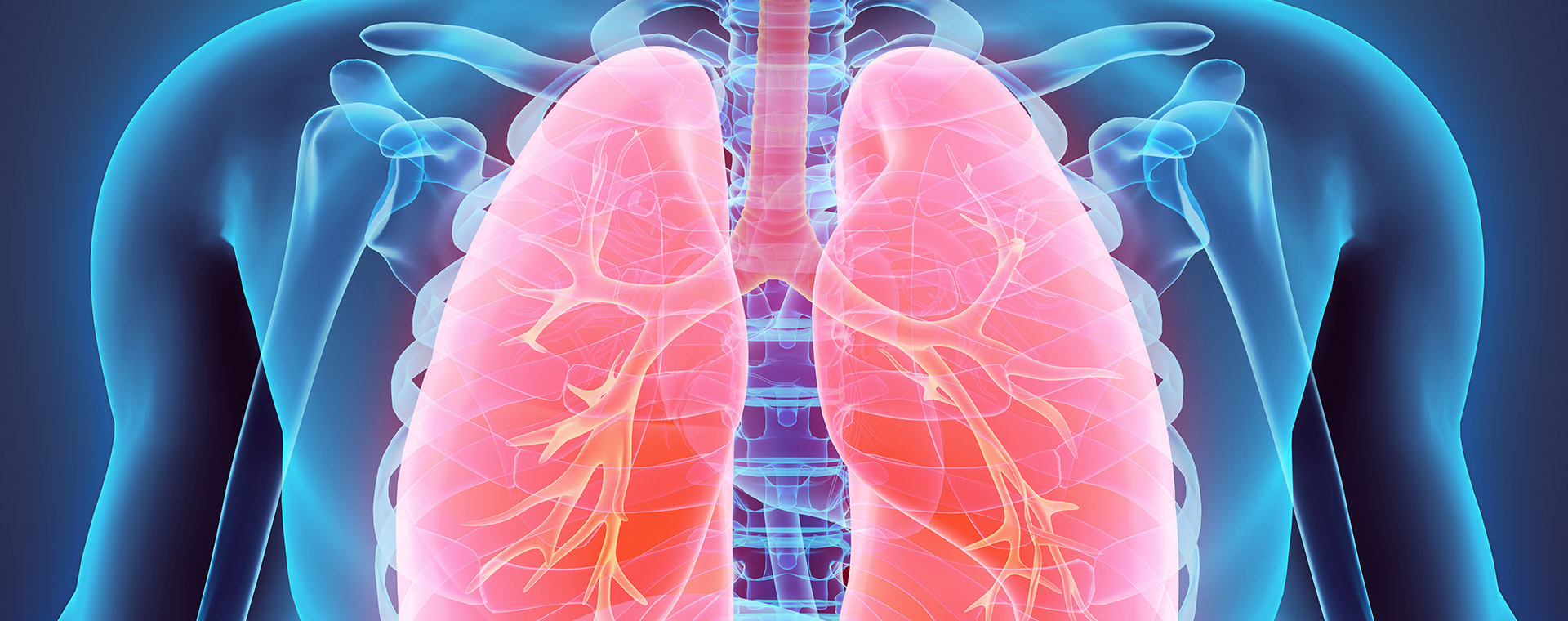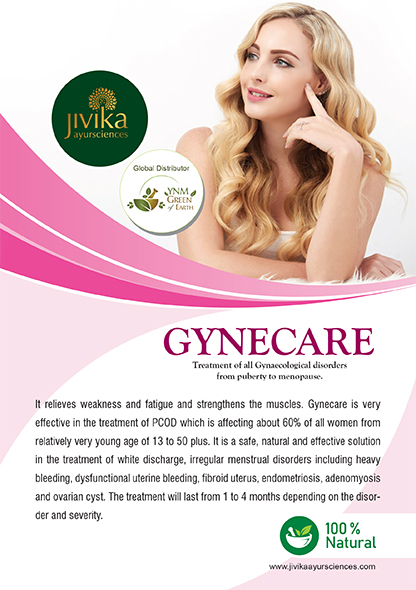For all Gynaecological disorders from puberty to menopause.
It relieves weakness and fatigue and strengthens the muscles. Gynecare is very effective for PCOD’s which is affecting about 60% of all women from relatively very young age of 13 to 50 plus. It is a safe, natural and effective solution for white discharge, irregular menstrual disorders including heavy bleeding, dysfunctional uterine bleeding, fibroid uterus, endometriosis, adenomyosis and ovarian cyst. The consumption of the formulation will last from 1 to 4 months depending on the disorder and severity.
Usage and Benifit
- Non hormonal, purely herbal female formulation for regularizing menstrual cycle.
- For non-specific leucorrhoea.
- Strengthen uterine muscles.
- Helps in improving skin problems and gives healthy skin by purifying the blood.
- Significantly lowers insulin resistance.
- Increases sex hormone binding globulin.
- Restores ovarian functions and hormonal levels.
Mode of Action
PCOD’s, Fibroid uterus, ovarian cyst, Aderomyosis, Chocolate Cyst, Irregular menses (DUB), White discharge, Sterility.
DOSAGE
Two capsules thrice a day in PCOD’s for 2 to 3 months or as directed by the physician.
Two capsules thrice a day in Fibroid uterus for 1 to 1.5 months (below 3 cm) or as directed by the physician.
Two capsules thrice a day in ovarian cyst for 2 to 3 weeks for 6 to 8 cm size or as directed by the physician.
Capsule Composition
Lodhra (Symplocos Racemosa) 50 mg
Raktachandan ( Pterocarpus Santalinus) 50 mg
Haridra (Curcuma Longa) 50 mg
Manjista (Rubia Cardifolia) 25 mg
Jumbu Twak (syzygium Cumini) 25 mg
Jatamansi (nardastachya) 25 mg
Bilva Chaal (Aegle Marmelos Corr) 50 mg
Asoka (Sarava Asoca) 100 mg
Satavari (Asparagus Racemosus) 50 mg
Chitraka (Plumbago Zeyanical) 50 mg
Ingredients Highlight
Lodhra is a traditional medicine used by Ayurvedic practitioners. All parts like roots,bark as well as leaves of this plant are used for medicinal purposes but most useful is its stem. Lodhra is considered useful in managing female disorders such as leucorrhea (excessive vaginal discharge) which is caused by vaginal infections as it has antimicrobial and anti-inflammatory properties. It helps to manage excessive menstrual bleeding by promoting blood thickening due to its astringent and hemostatic (process which stops bleeding) properties. This hemostatic property is also useful in managing nose bleeding. For females suffering from PCOS (Polycystic Ovary Syndrome), Lodhra is quite useful as it increases the levels of female hormones and reduces the levels of male hormones in the female body. This helps in the maturation and release of eggs which otherwise gets compromised due to hormonal imbalance and reduces the symptoms of PCOS.
Pterocarpus santalinusalso known as red sandalwood or Rakt Chandan is used for treating digestive tract problems, fluid retention, and coughs; and for “blood purification.”Pterocarpus santalinus is used in traditional herbal medicine as an antipyretic, anti-inflammatory, anthelmintic, tonic, hemorrhage, dysentery, aphrodisiac, anti-hyperglycemic and diaphoretic.
Red Sandalwood helps manage ulcers due to its gastro protective property. It reduces the production of gastric acid in the stomach. It also has an antioxidant property that fights against the free radical and prevents the gastric cell damage.
Haridra is the Sanskrit name of turmeric, and is used in the traditional system of medicine. It is used as an antioxidant and possesses various beneficial properties such as anti-inflammatory, anti-allergic, antiseptic, blood cleansing etc. It is widely prescribed Ayurvedic drug and is used in various diseases because it can balance all three doshas – Vata, Pitta and Kapha.
It is also very important that it cleanses the energy channels, stimulates the chakras and improves the circulation of prana– the vital energy in the body.
The herb is useful for:
- Healing of wounds
- For cleansing of toxins, including in blood
- To increase appetite and better digestion
- Regulation of metabolism
- Stimulation of the protein absorption.
One of the specific diseases for which it is used is the disturbed blood circulation, as the herb reduces bad cholesterol and improves the elasticity of blood vessels. In addition, the plant is applied in conditions such as anemia, pharyngitis, cough, diabetes, spasms, arthritis, candida, skin problems, as it promotes tissue recovery, and so on.
Manjistha is an effective herb to manage skin disorders like psoriasis. This is due to its Raktashodhak (blood purifier) and Pitta balancing properties. It helps to purify blood and pacify Pitta dosha which are some of the main causes behind skin disorder like psoriasis. Manjistha is mainly used to break down blockages in the blood flow and remove stagnant blood.
Manjistha herb can be used both internally and externally on skin for promoting skin whitening. As per Ayurveda, taking Manjistha powder after lunch and dinner helps manage diarrhea due to its Deepan (appetizer) and Pachan (digestive) properties. Consuming Manjistha on a regular basis might be good for diabetics as it lowers the blood glucose levels.
Manjistha is useful in reducing the risk of urinary diseases like uterine bleeding, urinary discharge or stones. This is due to its antioxidant, anti-inflammatory, wound healing property. Also it is beneficial in case of urinary infections due to its antibacterial property.
Jambul, referred to as the ‘Fruit of Gods’ in India, this purple olive-like fruit becomes widely available in summers. jambol are not only nutritious and refreshing, but are also effective in combating sun’s heat and a number of health problems.
In fact, jamun found a special mention in Ramayana and is prized as the ‘Fruit of Gods’ as Lord Rama survived eating this berry during his 14 years of exile in the forest.
Available in two varieties – Jamuns with white toned flesh and has a good amount of pectin while the other one with dark purplish flesh has lower amounts of pectin.
Black Plums are also low on calorie count with only 3 to 4 calories compared to other berries and is an excellent source of vitamin – C, carbohydrates, protein, iron, magnesium, potassium and few phytochemicals.
The fruit is diuretic, anti- scorbutic and carminative in properties and is a rich source of polyphenolic compounds. Ayurveda strongly recommends this berry for treating various conditions related to heart, arthritis, asthma, stomach pain, bowel spasm, flatulence and dysentery. The diuretic effects of jamun flushes toxins out of the kidneys, while the high fibre content aids in digestion and prevents nausea and vomiting.
Several studies show that the high alkaloid content present in jamun is effective in controlling hyperglycaemia or high blood sugar. Apart from the fruit, extracts from the seeds, leaves and bark are useful for reducing the high levels of blood sugar in your body.
Jatamansi acts as a brain tonic and helps to improve memory and brain functions by preventing cell damage due to its antioxidant property. It also calms down the brain and manages anxiety as well as insomnia. According to Ayurveda, Jatamansi helps in preventing wrinkles due to its Snigdha (oily) nature.
Benefits of Jatamansi are useful to manage the symptoms of anxiety, help to manage the symptoms of epilepsy and are useful to induce sound sleep. Jatamansi also helps in managing the symptoms of memory loss when used on a regular basis.
Bael is loaded with a myriad of nutrients which include vitamins A, B1, B2, C and minerals calcium, potassium and iron. The host of plant compounds in bael is beneficial in treating tuberculosis, hepatitis, ulcer and digestive problems. Furthermore, it is also a good source of tannins which aid in treating cholera.
These fruits are also popular for antioxidant, anti-inflammatory and laxative properties and it has been in use for its medicinal and therapeutic properties in Ayurveda, Siddha and other forms of alternate medicine for thousands of years.
Ashokaor Sorrowless tree(Saraca indica Pennel)is an erect tree, small and evergreen, with a smooth, grey-brown bark. Ashoka has been traditionally used in Ayurveda as a uterine tonic and has been indicated in menstrual irregularities ESP in DUB. Ashoka happens to be a uterine stimulant and increases uterine contractions. It also stimulates the ovarian tissue.
Shatavari (Asparagus racemosus) is a species of asparagus plant that has been used for many centuries in Ayurvedic medicine. It’s also an adaptogenic herb. Adaptogenic herbs are said to help your body cope with physical and emotional stress. Shatavari is said to promote fertility and have a range of health benefits, particularly for the female reproductive system. Shatavari can be extremely beneficial for women’s reproductive health throughout all stages of their life. Research demonstrates that Shatavari roots can help promote the production of breast milk in lactating women, and support overall immunity.
The benefits of taking shatavari includes:
Antioxidants help prevent free-radical cell damage. They also battle oxidative stress, which causes disease. Shatavari is high in saponins. Saponins are compounds with antioxidant abilities. According to a study, a new antioxidant called racemofuran was identified within shatavari root. Two known antioxidants — asparagamine A and racemosol — were also found.
Racemofuran, which is found in shatavari, also has significant anti-inflammatory capabilities. Racemofuran acts similarly in the body as prescription anti-inflammatory drugs known as COX-2 inhibitors. These types of drugs are thought to reduce inflammation without serious digestive side effects.
Shatavari is used in ayurveda as an immunity booster. According to a study, animals treated with shatavari root extract had increased antibodies to a strain of whooping cough when compared to untreated animals. The treated animals recovered faster and had improved health overall. This suggested an improved immune response.
Bottom of Form
Chitrak, also called Doctor Bush, is one of the oldest plants known for its medicinal value and is considered as Rasayana in Ayurveda. Chitrak root is beneficial in managing diabetes. It lowers blood glucose levels by enhancing insulin secretion due to its anti-diabetic and antioxidant properties. Chitrak also reduces the blood cholesterol and triglyceride levels and thereby, helps in weight loss. It also aids in reducing anxiety and calming the brain activity as it suppresses the central nervous system due to its relaxant properties.
According to Ayurveda, it helps improve the digestive system due to its Deepana (appetizer) and Pachana (digestion) properties. It also helps manage atherosclerosis as it prevents the deposition of fatty substances in arteries and maintains the blood flow in the body.
Chitrak can also be used for external purposes. It helps in managing various skin diseases such as acne, sore, dermatitis due to its antioxidant and antimicrobial properties. It also accelerates wound healing owing to its antioxidant properties and helps in the formation of new skin cells.
Side Effects
No adverse/ toxic effects have ever been observed in short/ long term usage of Gynecare in recommended dosage.
Caution
Keep the medicine away from direct sunlight, moisture and reach of children.










